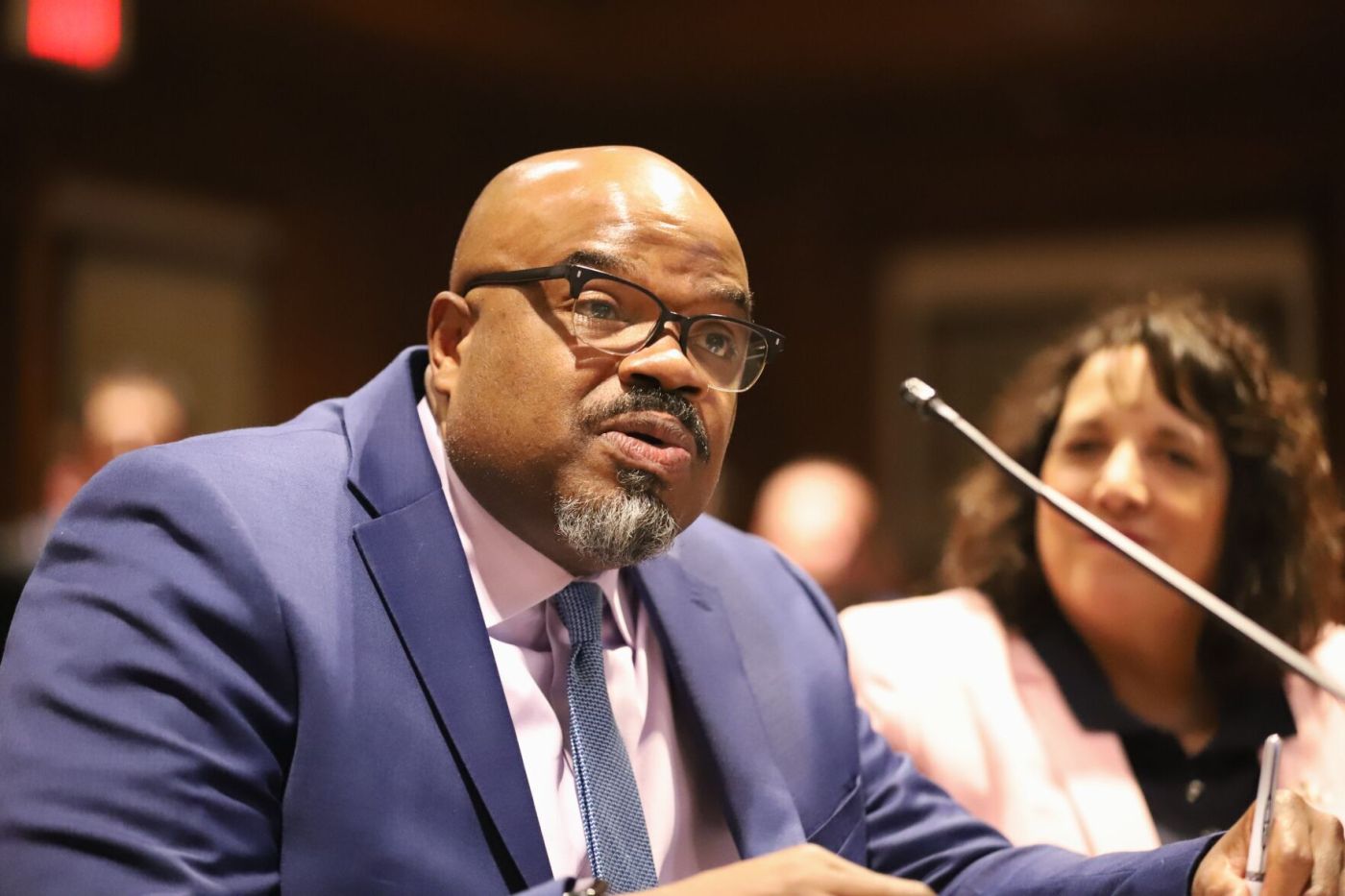Education
Massachusetts Considers New Graduation Assessments for High School Students

High school students in Massachusetts may soon face new graduation requirements linked to specific coursework. This potential change arises from draft regulations proposed by Governor Maura Healey’s Statewide K-12 Graduation Council, established to create a permanent graduation standard after the November 2024 ballot decision to eliminate the MCAS exam as a graduation criterion.
The preliminary draft suggests that students demonstrate “mastery” through end-of-course assessments tailored to specific subjects. These assessments would be designed, administered, and scored by the state, ensuring a consistent standard across Massachusetts. This proposed shift follows a significant voter decision, with nearly 59% supporting the removal of the MCAS graduation requirement.
Supporters of the ballot initiative argued that the MCAS exam imposed unnecessary barriers for approximately 1% of students annually, labeling it a “one-size-fits-all” test. In contrast, key state leaders, including Healey, Senate President Karen Spilka, and House Speaker Ron Mariano, expressed concerns about the potential long-term implications for educational consistency and equity in the state.
Critics of the proposed changes warn that abandoning a statewide test could exacerbate disparities in educational standards across different school districts, potentially undermining the credibility of a Massachusetts diploma. The draft regulations indicate that in addition to assessments, students might also be required to complete capstone projects or portfolios, which would be defined by the state but assessed locally, allowing for a more personalized demonstration of mastery.
Jason Fraser, president of the Massachusetts Association of School Committees and a member of the advisory council, voiced concerns regarding the direction of the proposal. In a letter to MASC members, he expressed apprehension that the language in the preliminary recommendations could lead to the introduction of new standardized tests under a different name. He cautioned that such measures could conflict with the will of Massachusetts voters, who decisively opted to abandon high-stakes testing as a graduation requirement.
Fraser emphasized the risk of reintroducing high-stakes testing, stating, “Reintroducing such measures, even under a different name, risks undermining both voter intent and the trust of our communities.” His comments reflect a broader unease among stakeholders regarding the potential implications of the proposed assessment changes.
The council is still in the early stages of discussions and has not finalized any recommendations. Patrick Tutwiler, Secretary of Education, has reiterated that council members serve in an advisory capacity, with final recommendations ultimately resting with the Governor. Alana Davidson, a spokesperson for the Executive Office of Education, confirmed the ongoing nature of the council’s work, stating, “No recommendations have been decided at this time.”
The Statewide K-12 Graduation Council has been actively engaging with stakeholders, conducting extensive research, and facilitating discussions through multiple statewide listening sessions. Over 400 stakeholders, including students, parents, educators, and business leaders, participated in these sessions, while a separate survey garnered responses from more than 6,600 individuals.
The council is expected to release its initial findings later this fall, with a comprehensive report and proposed roadmap slated for completion in 2026. These recommendations are intended to ensure all students meet high expectations before graduating.
In addition to demonstrating academic mastery, the draft framework proposes aligning curriculum requirements with MassCore, the state’s suggested high school course of study. Students would also need to complete a “MyCAP” (My Career and Academic Plan), receive instruction in financial literacy, and have the opportunity to earn seals of distinction recognizing various achievements.
Furthermore, the proposed regulations would mandate that every student complete the Free Application for Federal Student Aid (FAFSA) and the Massachusetts Alternative Student Financial Aid (MASFA), with an opt-out option. This requirement aims to enhance access to postsecondary education, a goal reflected in similar legislative efforts. Currently, 57% of Massachusetts high school seniors complete the FAFSA, though the rate drops to just below 40% for low-income students compared to nearly 70% for their higher-income peers, according to the National College Attainment Network.
The upcoming months will be crucial for the Massachusetts education system as stakeholders await the council’s recommendations and assess the potential impacts on graduation standards and student outcomes.
-

 Technology5 months ago
Technology5 months agoDiscover the Top 10 Calorie Counting Apps of 2025
-

 Health2 months ago
Health2 months agoBella Hadid Shares Health Update After Treatment for Lyme Disease
-

 Health3 months ago
Health3 months agoErin Bates Shares Recovery Update Following Sepsis Complications
-

 Technology4 months ago
Technology4 months agoDiscover How to Reverse Image Search Using ChatGPT Effortlessly
-

 Technology1 month ago
Technology1 month agoDiscover 2025’s Top GPUs for Exceptional 4K Gaming Performance
-

 Technology2 months ago
Technology2 months agoElectric Moto Influencer Surronster Arrested in Tijuana
-

 Technology5 months ago
Technology5 months agoMeta Initiates $60B AI Data Center Expansion, Starting in Ohio
-

 Technology5 months ago
Technology5 months agoRecovering a Suspended TikTok Account: A Step-by-Step Guide
-

 Health4 months ago
Health4 months agoTested: Rab Firewall Mountain Jacket Survives Harsh Conditions
-

 Lifestyle5 months ago
Lifestyle5 months agoBelton Family Reunites After Daughter Survives Hill Country Floods
-

 Technology4 months ago
Technology4 months agoHarmonic Launches AI Chatbot App to Transform Mathematical Reasoning
-

 Technology3 months ago
Technology3 months agoUncovering the Top Five Most Challenging Motorcycles to Ride




















